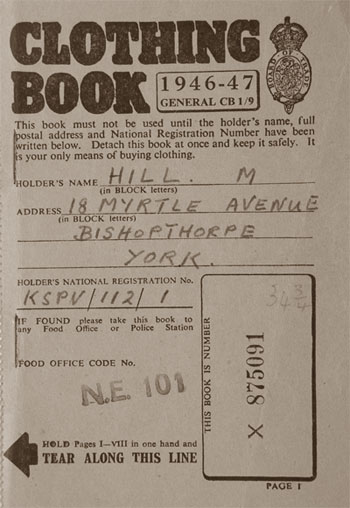Who should pay our Debts?
Individual newspapers and other sections of the media all have their different ways of presenting the predicament the country is in and how it got there. They do all agree that we have a massive debt that has to be addressed but strongly disagree on how we should go about it.

This is not surprising because those that were elected strongly disagreed with each other’s opinions of what must be done to remedy the situation. Some say it should be the better off who make up the bulk of the deficit, while others reply, [diplomatically], that it ought to be the masses who adjust their lifestyle and find the money that is needed.
With the majority of people already in debt, often as a result of following and acting on the advice they have been given by those in authority, there is unlikely to be very much to be had from them. It is successive Government’s legislation, with the support of the media, that’s responsible for the increase in personal greed and the indifference shown towards the needs of others in our communities today.
Perhaps it is time for someone to look at the real cause of the current situation to see what can and has to be done about it.
Did You Know?
For generations this Country has been in debt as a result of successive governments having to borrow to meet their election promises. Between the wars the Country was in recession and communities had very little: – Some barely enough to survive on. What other way could the funds have been raised to prepare and go to war for six years?
At that time people had got used to deriving their greatest pleasures from those things they had to save and wait for. This not only applied to personal things but also essentials needed for the community, like schools, hospitals etc. There were none of the allowances we get today. Nor did they have the NHS that we all now take for granted.

Families considered themselves lucky if they were able to feed and clothe their children and very few grew up without having to make do with hand me downs at some time in their young lives. Things were often passed on from family to family. Food came first and it was not unusual for produce from the allotments to be shared between neighbours.
People were very close and everyone living in the street knew and befriended one another. They had to because there were always occasions when they only had each other to depend on. All their joys and sorrows were shared and consequently they were free of the envy and greed that seems to exist in all walks of life today. When one family celebrated all their friends and neighbours joined in. If they were sad there was always a helping hand and lots of shoulders to cry on.
Today we seem to confuse what we want with what we need and that which is essential. It is interesting to read of the war years relating to how people coped when there was so little food and other necessities available. Lots of the time they had to accept what the shopkeeper gave them. Except for people like farm workers who were given some extra rations, no matter how much money they had, the food ration was the same for all.

There was no way next weeks coupons could be used in advance, building up a debt as you can with most things today. People soon adapted and as more and more of the young men had to leave home, families and friends were drawn even closer together. Everyone had similar problems and through it all they did their best to remain cheerful as they laughed cried and sang together.

In days gone by those fortunate enough to make a lot of money reinvested it so it circulated and was a benefit to the whole Community, creating jobs etc. Where do the profits go today? Much of it seems to go out of the country and does little or no good for those people who helped to make it. What happened to the owners of our Mills, Mines, Shipyards, Steel works etc. etc. Most of their profits were ploughed back into the business.
Today, private companies, many of who seem to be owned by other countries, have money and are always looking to expand in order to make even more. Wouldn’t it be nice if we could all settle for having just enough to be both financially and emotionally comfortable. Unfortunately, there are always those that want more and the old saying, ‘The more you have the more you want’ was never more appropriate.

We have to have progress but when something is successful and giving a reasonable profit, why do they have to continue to try and take business from each other and expect to have more every year? Why can’t they just stay as they are and be content to enjoy and make the most what they already have.
Perhaps we should try harder to follow the example of our grandparents and find the contentment they enjoyed and shared in spite of the difficulties that confronted them.

valley lad – [EIGHTY-SEVEN]








